Uncategorized
-
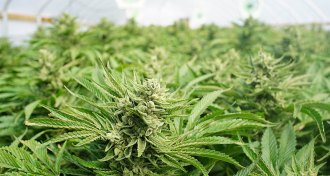 Psychology
PsychologyConfusion lingers over health-related pros and cons of marijuana
50 years ago, the effects of chronic marijuana smoking on mental health were hazy. They still are.
By Bruce Bower -
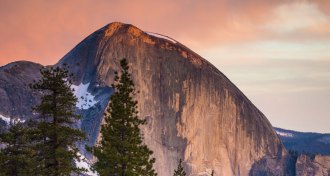 Earth
EarthPlate tectonics started at least 3.5 billion years ago
Analyses of titanium in rock suggest plate tectonics began 500 million years earlier than thought.
-
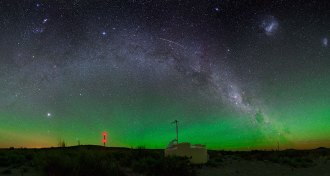 Astronomy
AstronomyUltrahigh energy cosmic rays come from outside the Milky Way
The biggest cosmic ray haul ever points toward other galaxies as the source of the rays, not our own.
-
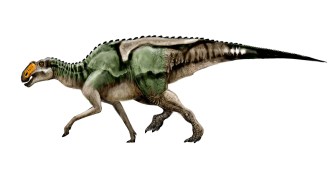 Paleontology
PaleontologyShhhh! Some plant-eating dinos snacked on crunchy critters
Scientists studying dinosaur poop found that some duck-billed dinos cheated on their vegetarian diets by snacking on crustaceans.
-
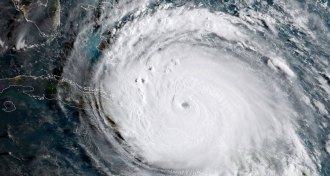 Earth
EarthIntense storms provide the first test of powerful new hurricane forecast tools
From Harvey to Maria, this year’s powerful hurricanes are giving scientists’ latest forecasting tools a trial by fire.
-
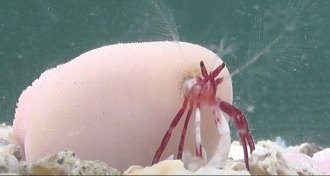 Animals
AnimalsThis newfound hermit crab finds shelter in corals, not shells
A newly discovered hermit crab takes its cue from peanut worms and uses walking corals as a permanent shelter.
-
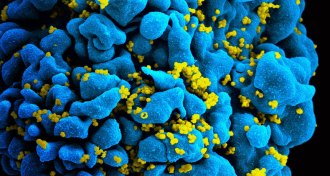 Health & Medicine
Health & MedicineBy ganging up, HIV antibodies may defeat the virus
A duo or trio of powerful antibodies was effective at stopping an HIV-like infection in lab monkeys, two studies find.
-
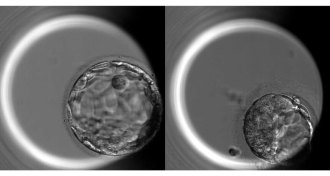 Genetics
GeneticsIn a first, human embryos edited to explore gene function
In groundbreaking research, CRISPR/Cas9 used to study human development for the first time.
-
 Astronomy
AstronomyReaders ponder mini-spacecraft and Canaanites’ genomes
Readers have questions about miniature spacecraft project and Canaanite genealogy.
-
 Tech
TechNature offers inspiration, and occasionally courage
Acting Editor in Chief Elizabeth Quill discusses how nature can inspire people to make long-lasting change.
-
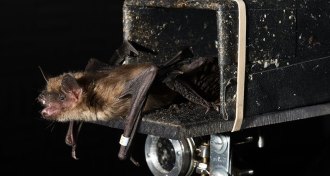 Animals
AnimalsBat brain signals illuminate navigation in the dark
New lab technologies that let bats fly freely allow scientists to track nerve cell signals as the animals dodge and weave.
By Amber Dance -
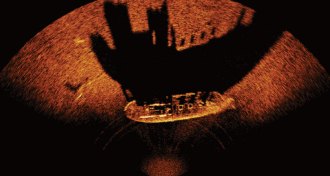 Animals
AnimalsHow bats could help tomato farmers (and the U.S. Navy)
The way bats navigate their environs inspires engineers to develop better sonar and robots that can estimate crop yield or deliver packages
By Amber Dance